African Climate Risks Conference (ACRC) 2019
7-9 October 2019 | Addis Ababa, Ethiopia
Summary Highlights: 7-9 October 2019
Highlights for Wednesday, 9 October 2019

The African Climate Risks Conference (ACRC) 2019 concluded on Wednesday, 9 October, with a busy programme including plenary sessions, panel discussions, workshops, and seminars. In the morning, two plenary sessions focused on the state of climate information services for development support in Africa and on mobilizing investment in climate services. On the state of climate information services, Filipe Lúcio, Director, Global Framework for Climate Services (GFCS), in a keynote speech, stressed the need to strengthen capacity regarding the provision of climate services, highlighting the urgency of action for Africa and the need to improve monitoring and evaluation. Stephen Mooney, Department for International Development (DfID), UK, underscored the need for African ownership of climate services, emphasizing co-production and “last-mile delivery” to reach those who really need the information.
Regarding mobilizing investment for climate services, Paul Watkiss, Department for International Development (DfID) Climate Mainstreaming Facility, emphasized in his keynote presentation, the economic value of weather and climate services, which extends beyond financial value. Dumisani Chirambo, Seeds of Opportunity, Malawi, stressed the potential to use social innovation and community science in providing climate services. Daniel Tsegai, UN Convention to Combat Desertification (UNCCD), presented on combating drought, risk insurance, and sustainable land management. Throughout the day delegates participated in:
- A session addressing climate services initiatives in Africa;
- Two seminars on the Intergovernmental Panel on Climate Change (IPCC) Special Reports on the oceans and cryosphere in a changing climate, and on climate change and land, respectively;
- Two panel discussions on implications and governance of carbon dioxide removal for adaptation and the SDGs, and on collaborative engagement of public, private, and academic sectors for the next generation of weather and climate intelligence; and
- Two workshops on tackling urban challenges by co-creating knowledge on food-water-energy nexus, and on research concepts for a joint Africa-European call on innovative climate services for the African regions.
In the closing plenary, Ernest Afiesimama, World Meteorological Organization (WMO), highlighted initiatives to break down barriers and faciliate integrated climate risk analysis in Africa. Chris Jack, University of Cape Town, South Africa, outlined key challenges and highlighted progress on: high-resolution modeling; conceptual understanding of model performance to inform model development; linking risk management resilience and climate information; and capacity development using climate information. Rosalind West, DfID, highlighted successes in advancing the fundamental science, and bringing that science into use, stressing that “climate science isn’t just for climate scientists, it is for everyone.”
Joseph Mukabana, WMO, emphasized the need to develop national frameworks for climate services in order to scale up the use of climate services in monitoring, production, delivery, and user application. Frank Rutabingwa, UN Economic Commission for Africa (UN ECA), stressed that the depth of discussions demonstrate that climate change is the biggest challenge on the continent. Robbie Redda, SouthSouthNorth, thanked delegates for a successful conference and closed the session at 5.04 pm.
+ Visit the web coverage for Wednesday, 9 October 2019
IISD Reporting Services, through its ENB+ meeting coverage, provided daily photographic coverage and a summary report from ACRC 2019. The summary report is now available in HTML and PDF.
Photos by IISD/ENB | Kiara Worth
For photo reprint permissions, please follow instructions at our Attribution Regulations for Meeting Photo Usage Page
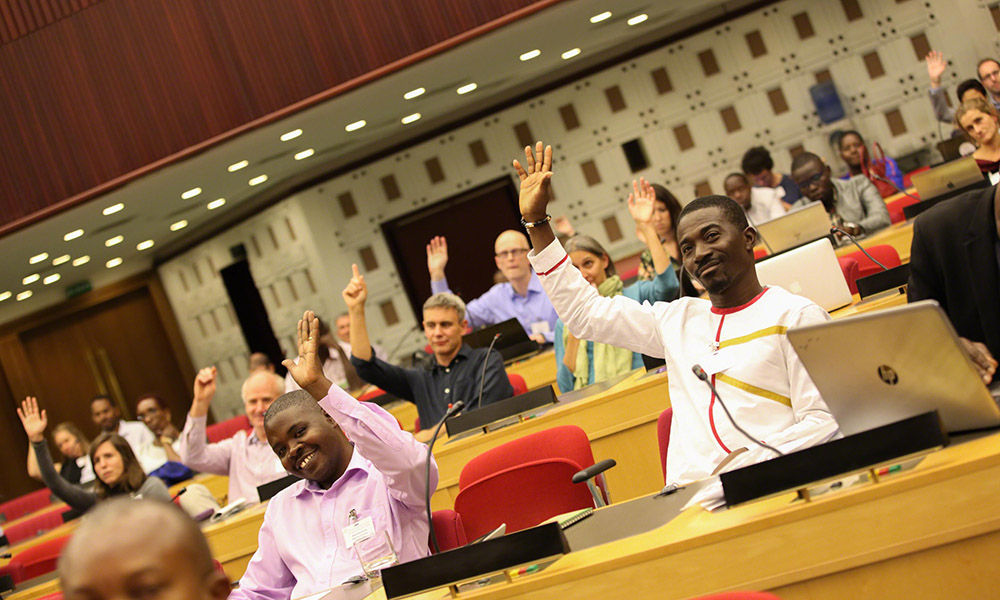
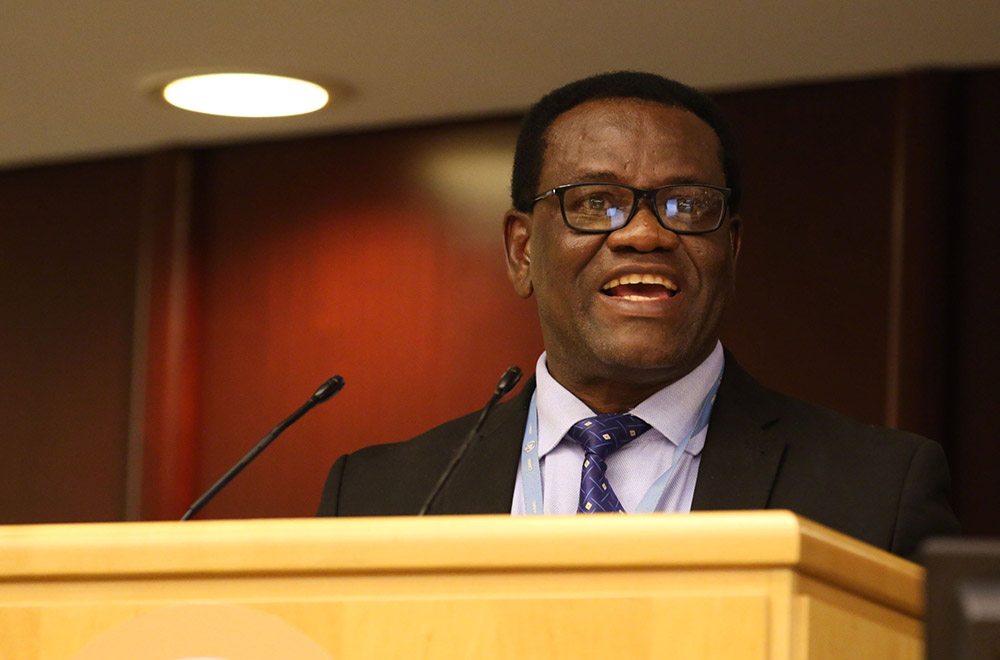
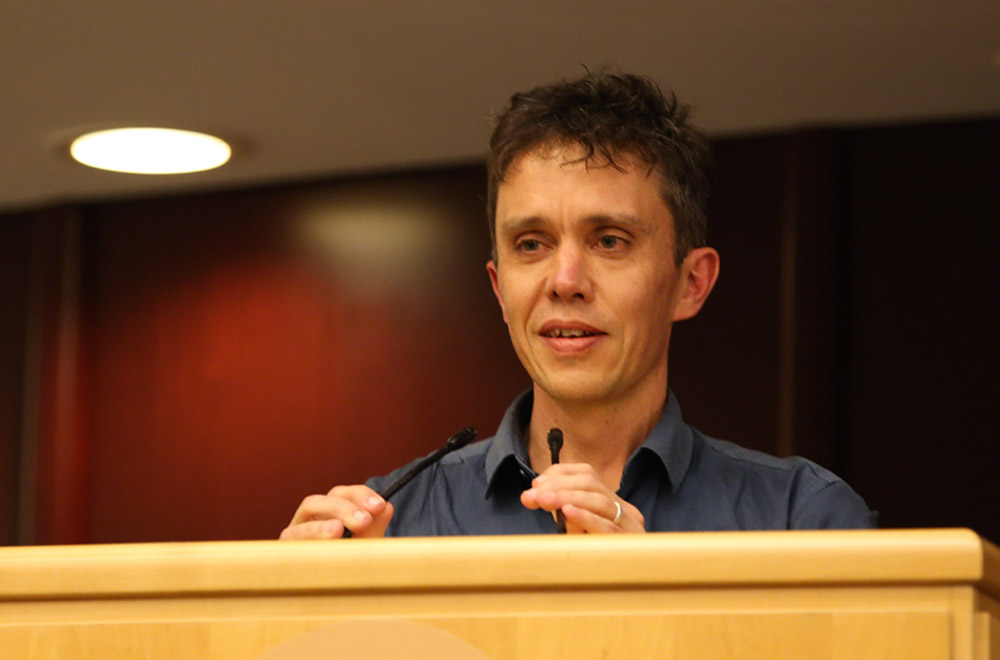
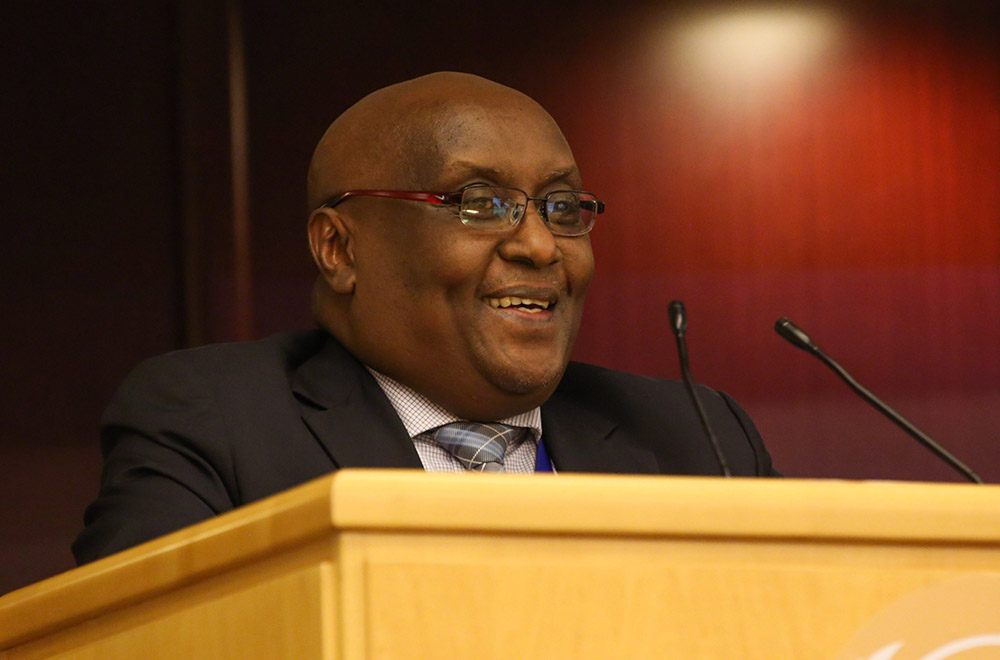
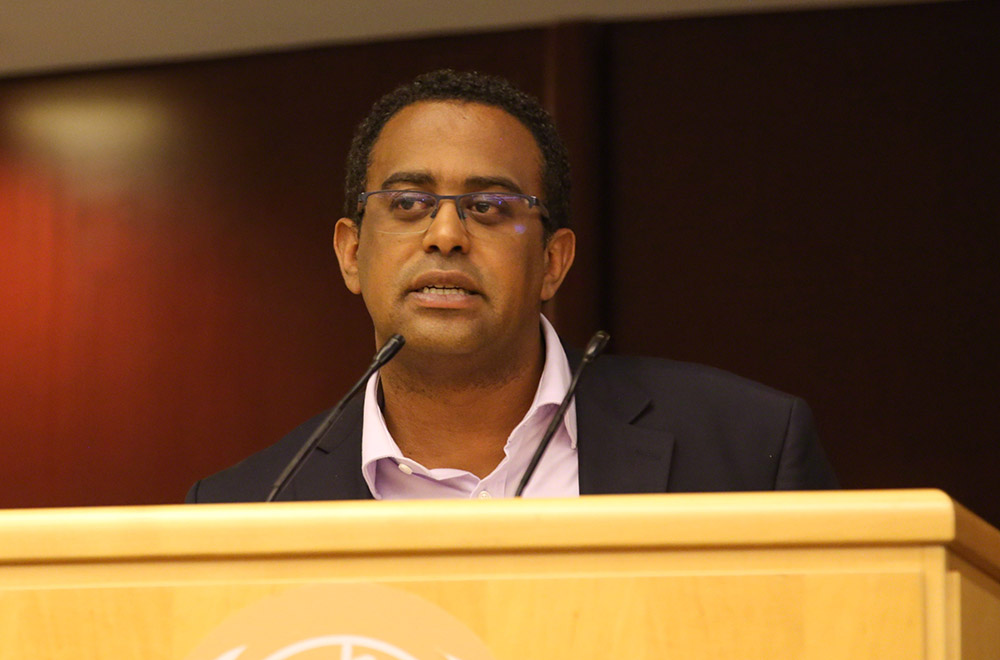
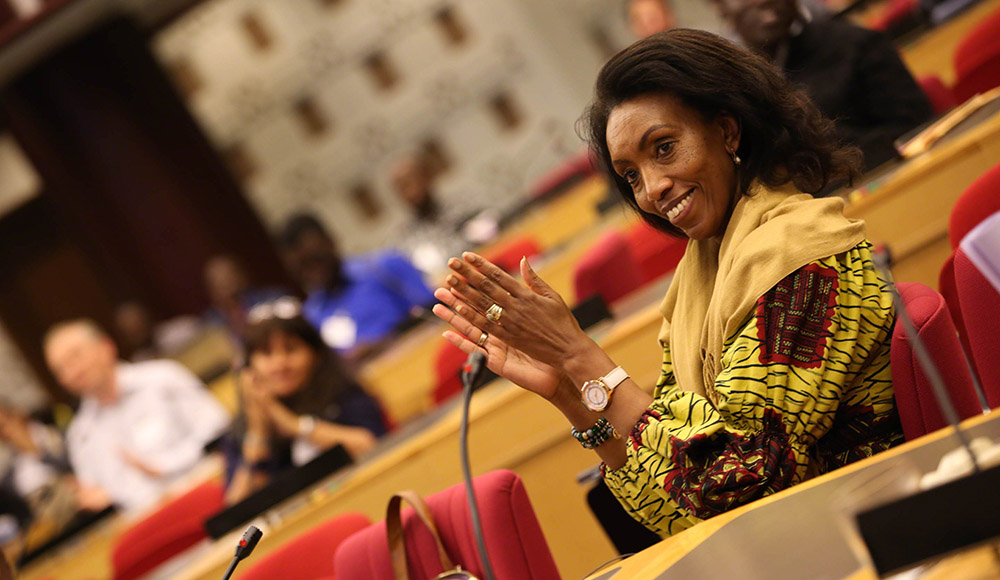
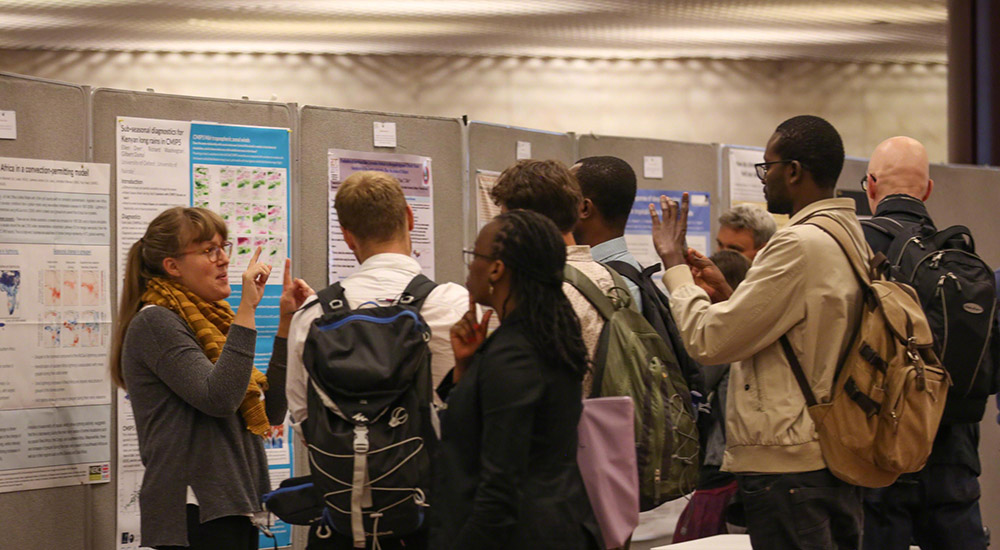
Highlights for Tuesday, 8 October 2018
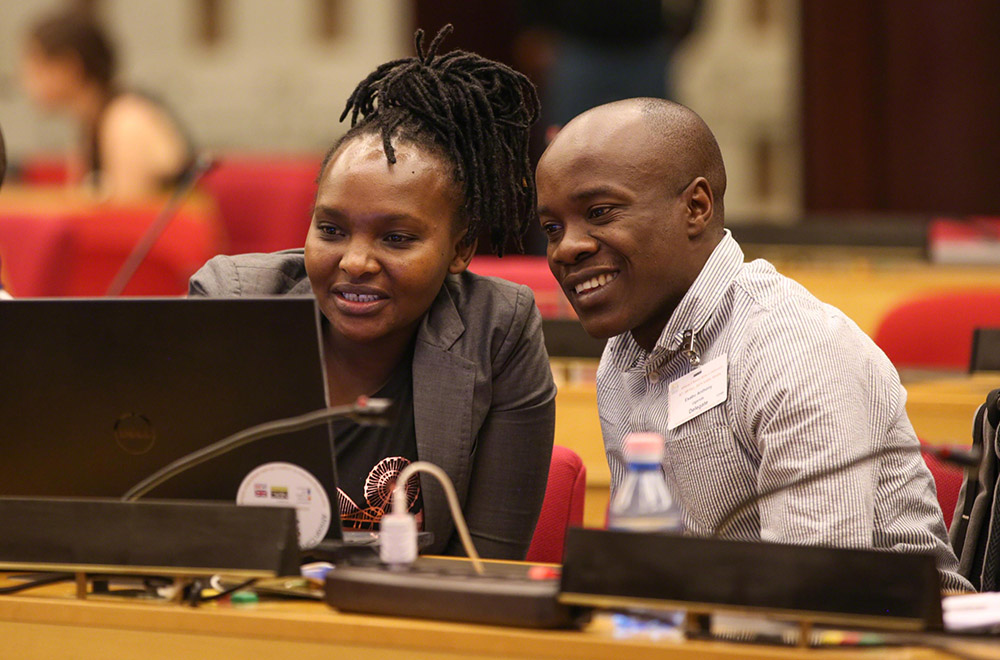
The African Climate Risks Conference (ACRC) 2019 continued on Tuesday, October 8, with a heavy agenda, including plenary and thematic parallel sessions as well as panel discussions, workshops, and seminars.
In the morning, two plenary sessions focused on the state of climate research for development in Africa and on linking new science to application. In a keynote speech, Joseph Mukabana, World Meteorological Organization (WMO), highlighted that scientific research in Africa is hindered by inadequate funding and insufficient research infrastructure, as well as a lack of strong intra-regional collaboration. Focusing on the Climate Research for Development (CR4D) in Africa initiative, he outlined programmes aimed at addressing existing research gaps.
During the panel discussion on the state of climate research in Africa, Oluyede Ajayi, Technical Centre for Agricultural and Rural Cooperation (CTA), the Netherlands, highlighted the increasing recognition of the development aspect of the CR4D initiative, emphasizing the co-production of knowledge by different disciplines. Jane Olwoch, Executive Director, Southern Africa Science Service Center for Climate Change and Adaptive Land Management (SASSCAL), focused on engagement with stakeholders; advocated multi-disciplinary research teams; and presented SASSCAL research projects. Bruce Hewitson, University of Cape Town, South Africa, highlighted the need to prioritize knowledge gaps, scaling research to match capacities, and emphasized that knowledge products should also reach relevant stakeholders, who cannot access face-to-face engagements.
Regarding linking new science to application, Tazen Fowe, International Institute of Water and the Environment (2iE), Burkina Faso, provided an overview of a pilot flood risk management project in Ouagadougou. Emma Visman, Kings College, London, highlighted an AMMA 2050, pilot pearl millet project in Niakhar, Senegal, developed because climate change is affecting crop yields and millet tolerates higher temperatures. Declan Conway, London School of Economics and Political Science (LSE), UK, outlined the challenges in constraining model uncertainty in rainfall projections for the Lake Malawi and Shire River systems in Malawi and the Rufiji River basin in Tanzania, stressing the need to focus on responses that work well across a range of future scenarios.
Throughout the day, parallel thematic sessions focused on:
- Latest research on climate science in Africa, covering a variety of issues;
- Delivering resilience in the face of climate change uncertainty, using various case studies from different African regions; and
- Cross-cutting issues, addressing the water-energy-food-health nexus.
The second day of ACRC 2019 also included two panel discussions, focusing on stepping up resilience and on multi-level governance in enabling climate resilient development. Three workshops addressed the co-production of weather and climate services, putting principles into practice; how social protection services can become more adaptive; and the long-term sustainability of water and energy nexus in Tana River Basin, Kenya. Two seminars discussed cities and climate risks, and lessons learned from the Weather and Climate Information Services (WISER) High Impact Weather Lake System (HIGHWAY) project. The official conference dinner took place in the evening at the Zoma Museum in Addis Ababa, Ethiopia.
+ Visit the web coverage for Tuesday, 8 October 2019
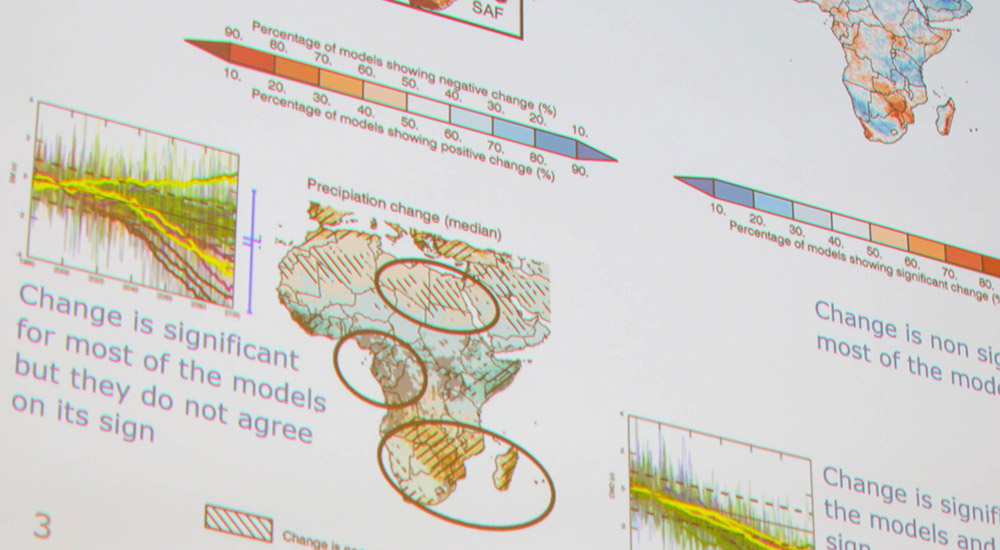
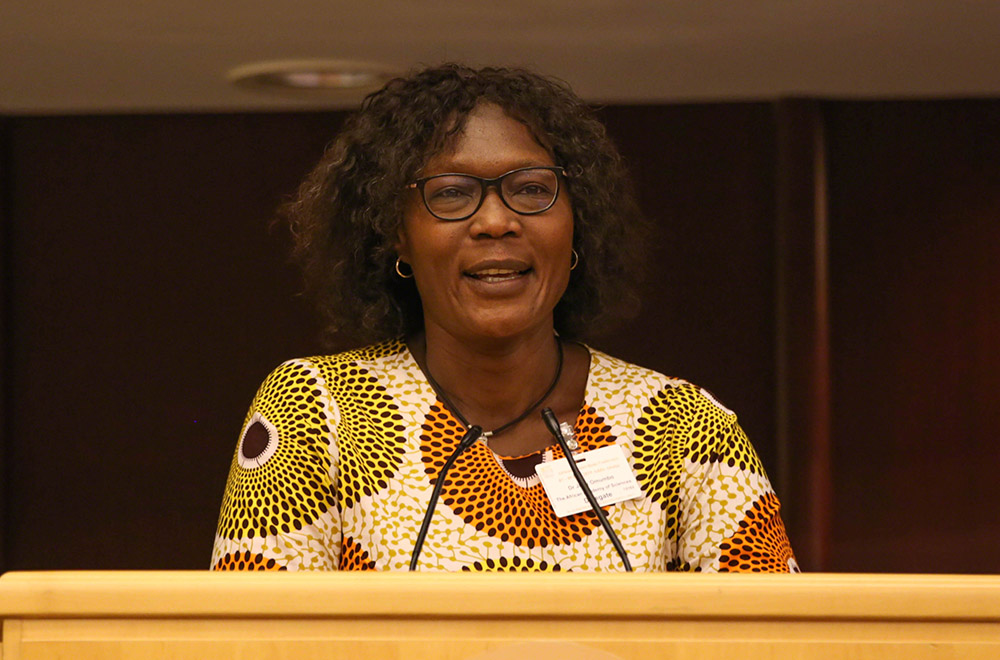
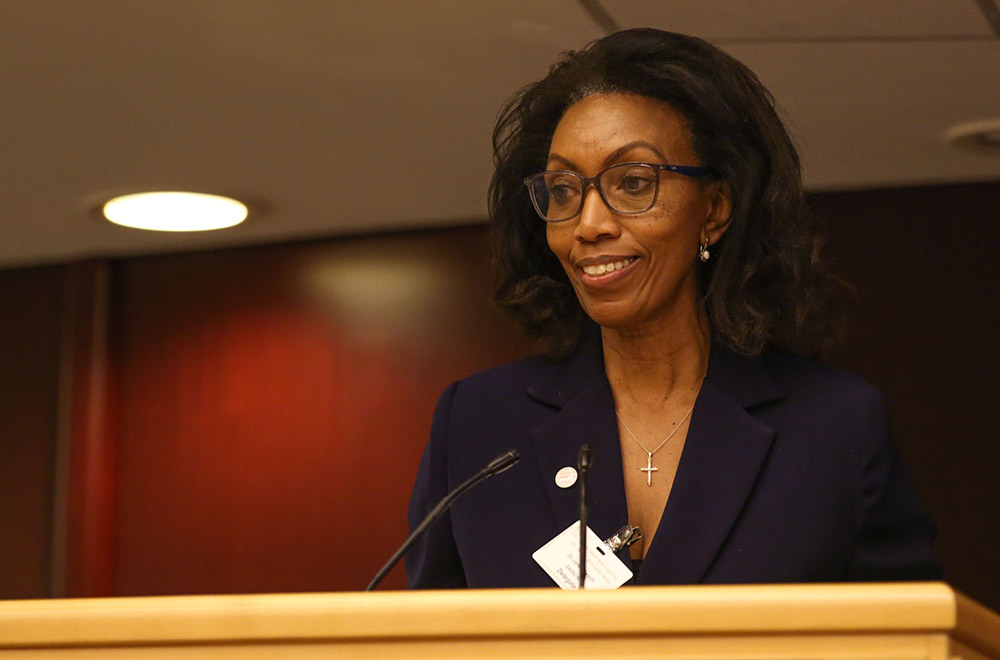
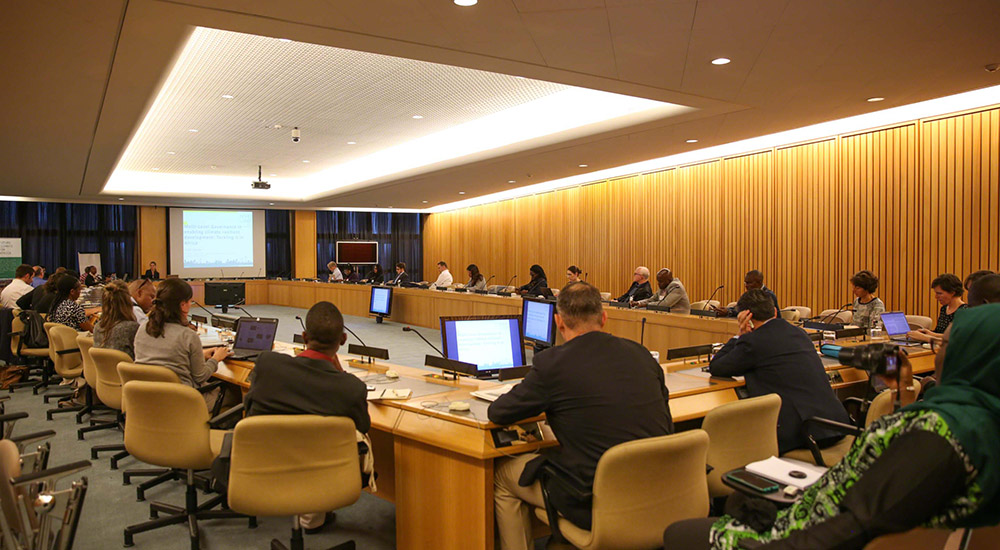
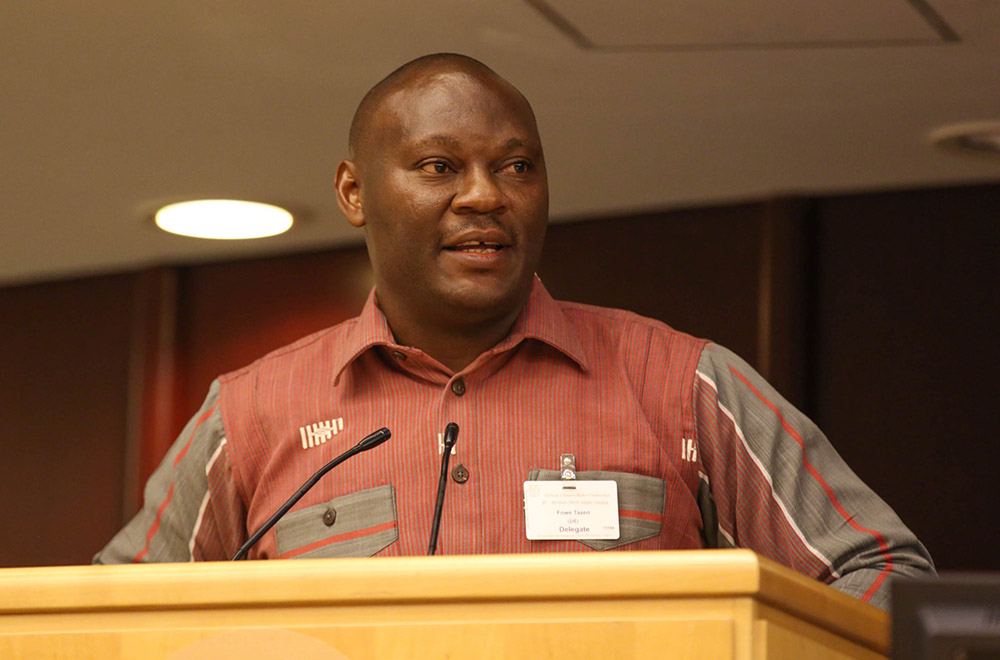
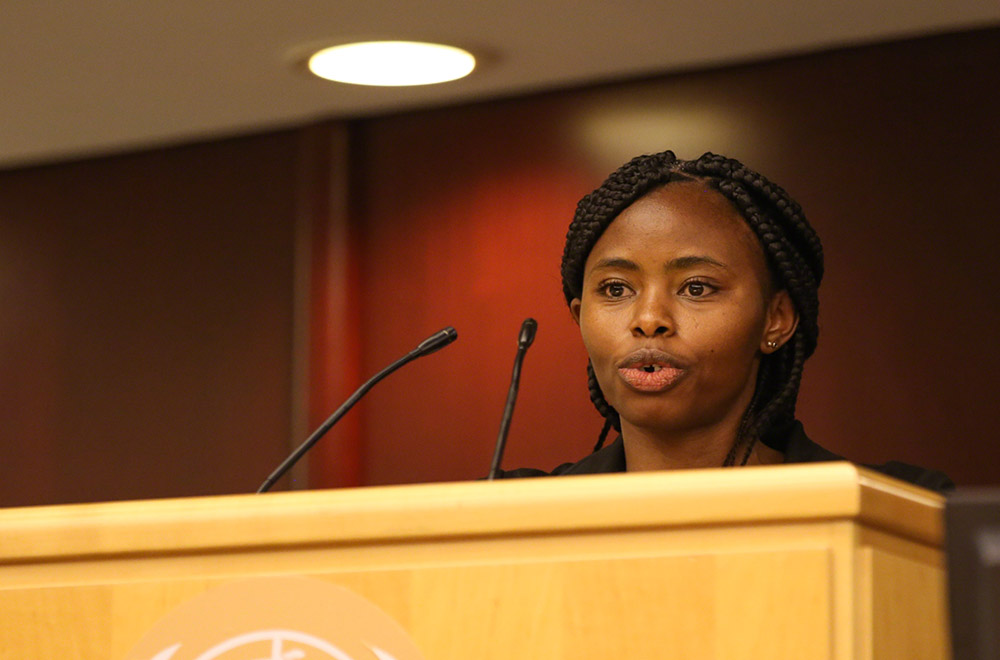
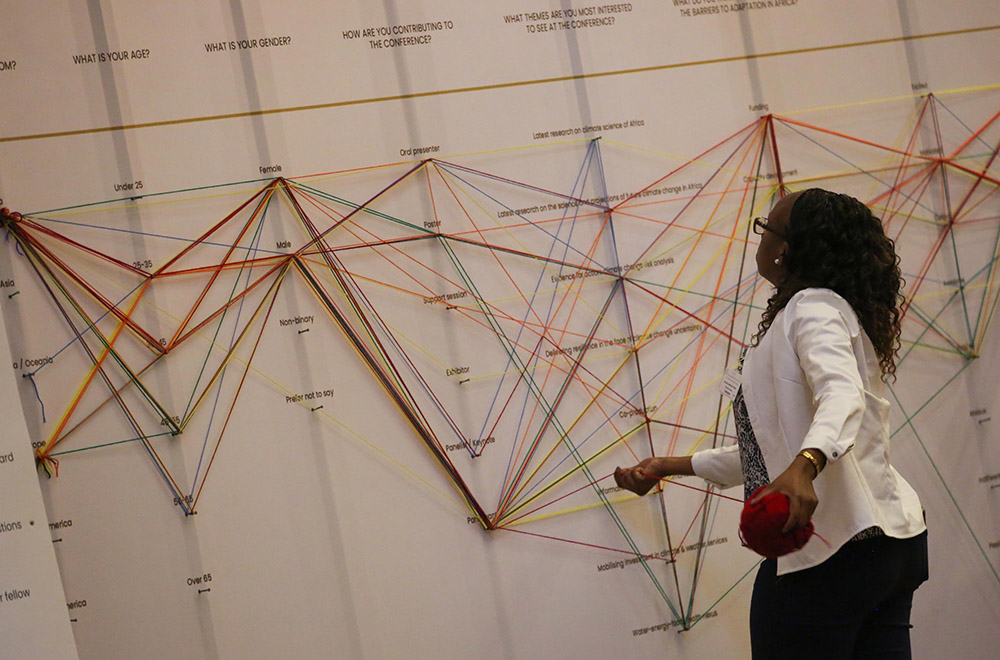
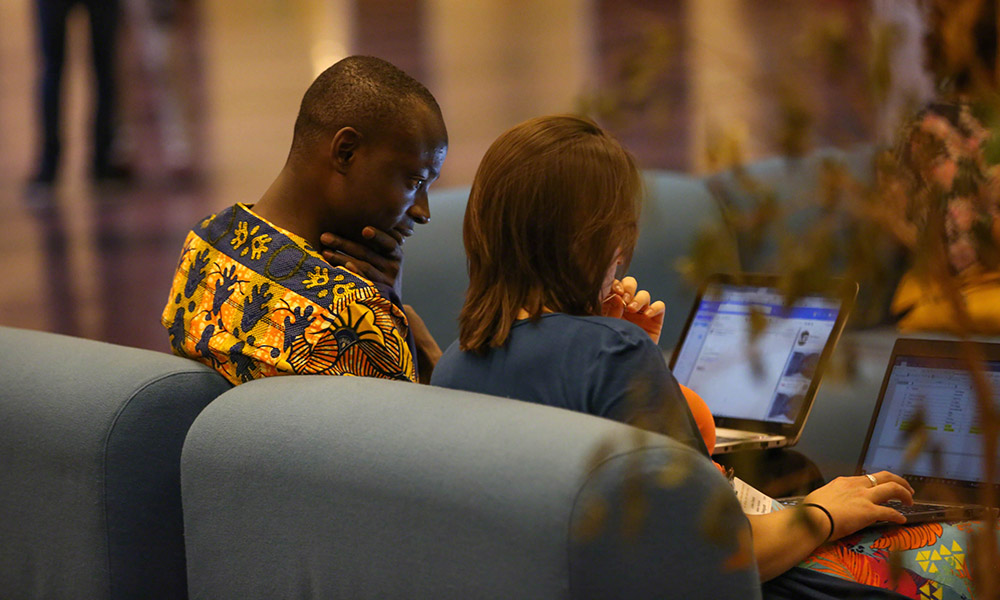
Highlights for Monday, 7 October 2018
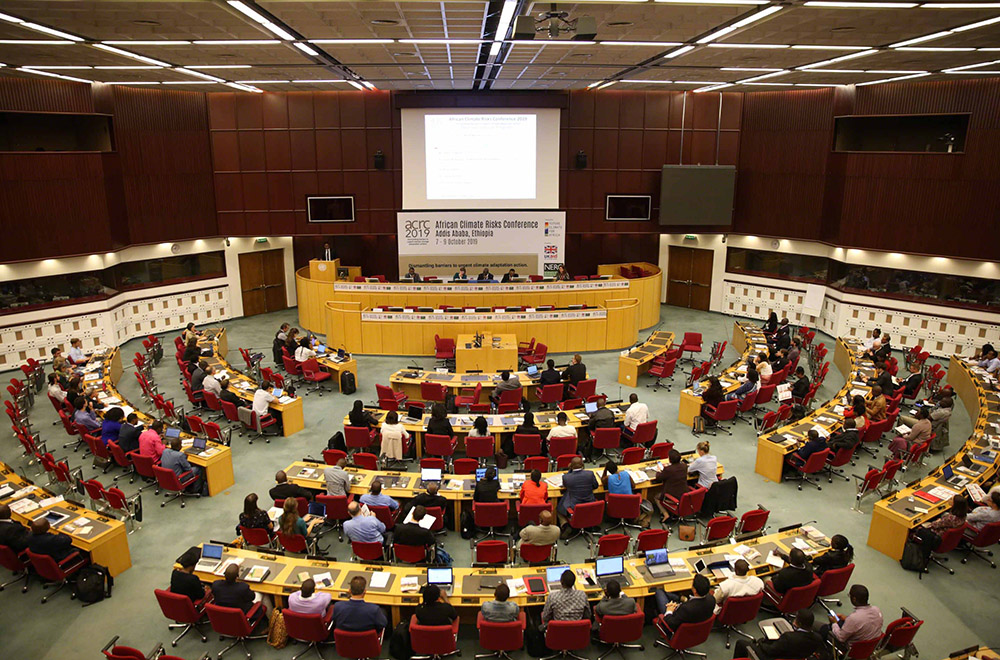
The first African Climate Risks Conference (ACRC) opened on Monday, October 7, in Addis Ababa, Ethiopia, aiming to offer a robust platform for sharing the latest African climate research.
The meeting kicked off with a high-level opening session under the overarching theme: “Dismantling barriers to urgent climate change adaptation actions.” Fekadu Beyene, Commissioner, Environment, Forest, and Climate Change Commission, Ethiopia, noted that while Africa's contribution to GHG emissions is negligible, it is heavily impacted by climate change, thus rendering climate adaptation a necessity. Joseph Mukabana, World Meteorological Organization (WMO) Regional Office for Africa, highlighted the conference as a space for coordinating efforts to optimize resources and avoid duplicating efforts, and noted the need for technology, capacity building, and finance. Drawing attention to various climate change-related challenges affecting Africa, Fetene Teshome, National Meteorology Agency, Ethiopia, noted that climate variability is a threat to agricultural production, compromising development.
Julius Kabubi, UN Office for Disaster Risk Reduction, urged the implementation of the Sendai Framework for Disaster Risk Reduction and the African programme of action for the implementation of the Framework. Filipe Lúcio, Global Framework for Climate Services, drew attention to the damage caused by Tropical Cyclone Idai, noting that drainage systems provided by mangroves and wetlands serving the city of Beira, in Mozambique, had been degraded by human settlements and charcoal production. Rosalind West, Climate Science and Services Advisor, Department for International Development, UK, stressed the meeting as an opportunity to: listen and learn; collaborate; and scale up efforts by transitioning from research into action.
Before breaking into parallel thematic sessions, participants heard presentations, in plenary, on findings from the Future Climate for Africa Programme. Various projects were outlined on, inter alia, rainfall trends, rainfall paradoxes in different African regions, and future resilience for African cities and lands.
Parallel thematic sessions were held throughout the day, including:
- An impressive array of presentations on the latest research on climate science in Africa;
- Different approaches, including multidisciplinary ones, on climate change risk analysis;
- Two sessions on co-production of knowledge between science, business, policy, practice, and local communities; and
- A session devoted to information distillation and communication.
The dense first day of ACRC also included two panel discussions, focusing on the agricultural and water sectors, respectively; two workshops on climate information distillation, focusing on constructing climate messages for decision making, and on collaborative resilience-building through Theatre Forum; a training session on the messages of the 2019 Intergovernmental Panel on Climate Change (IPCC) special reports for sub-Saharan Africa; and a seminar examining climate change adaptation.
+ Visit the web coverage for Monday, 7 October 2019
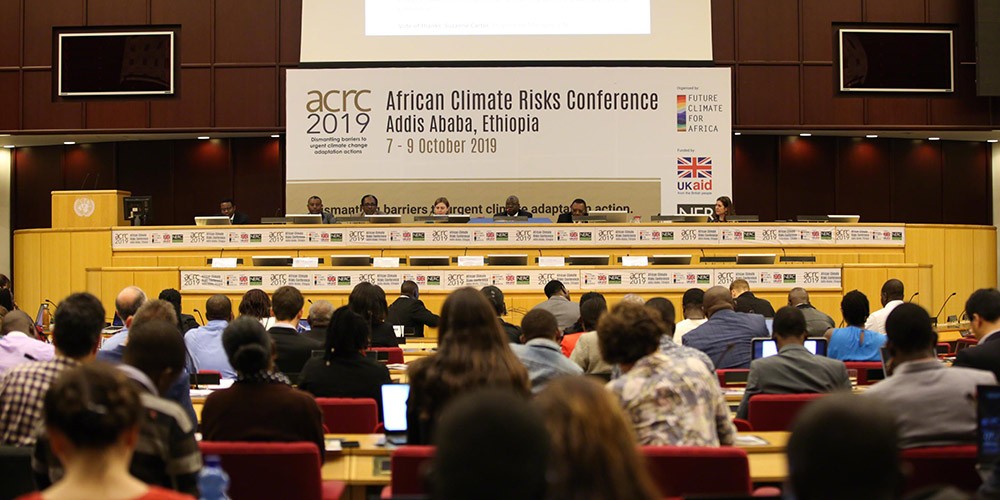
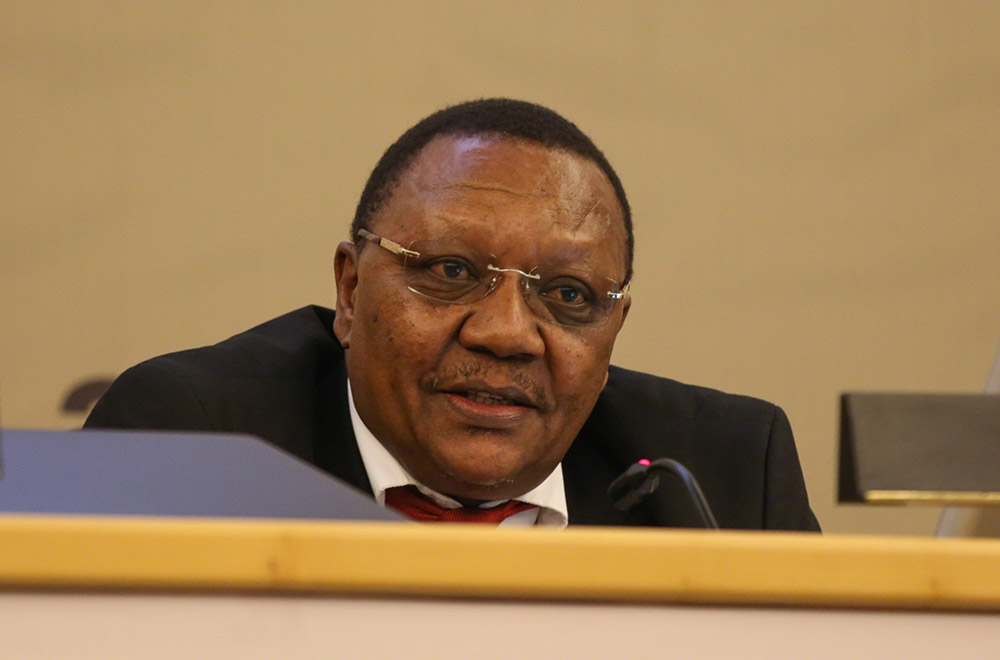
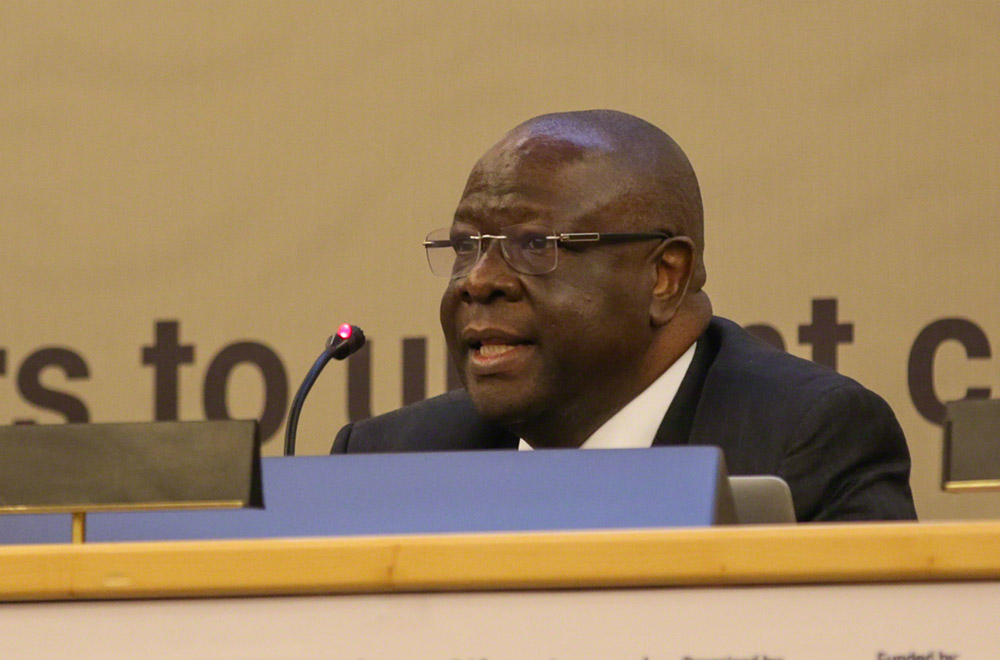
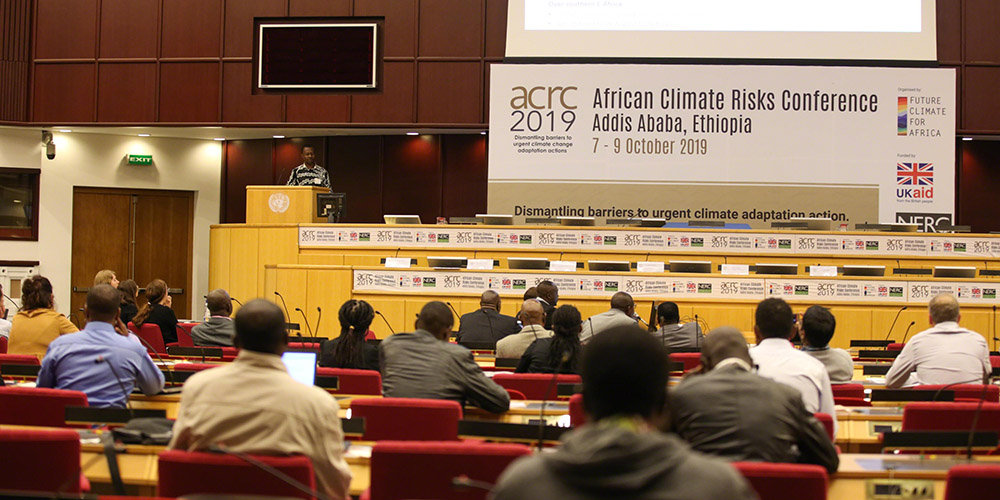
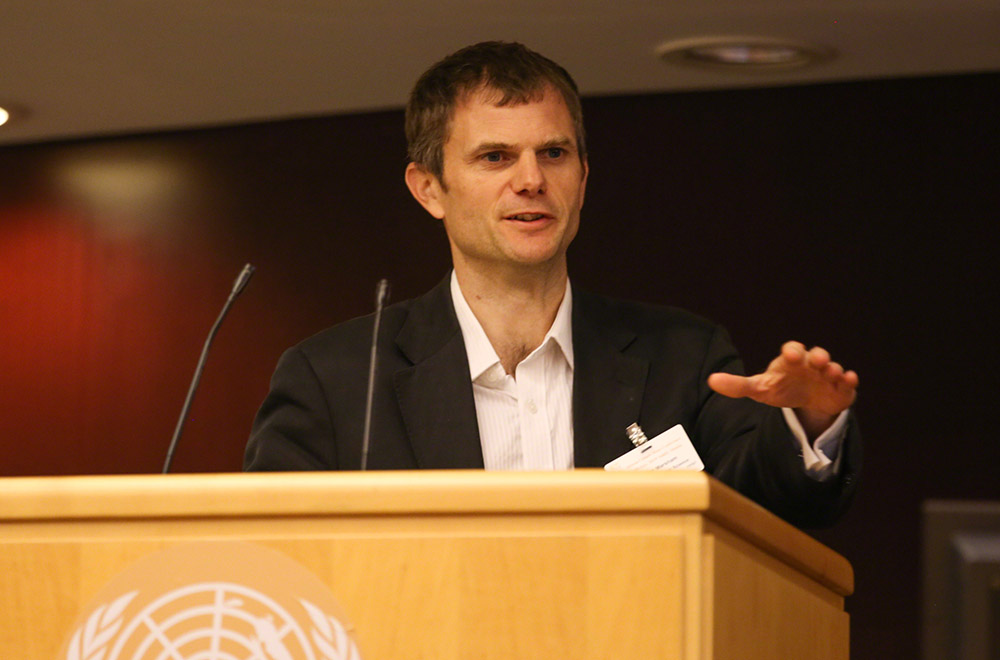
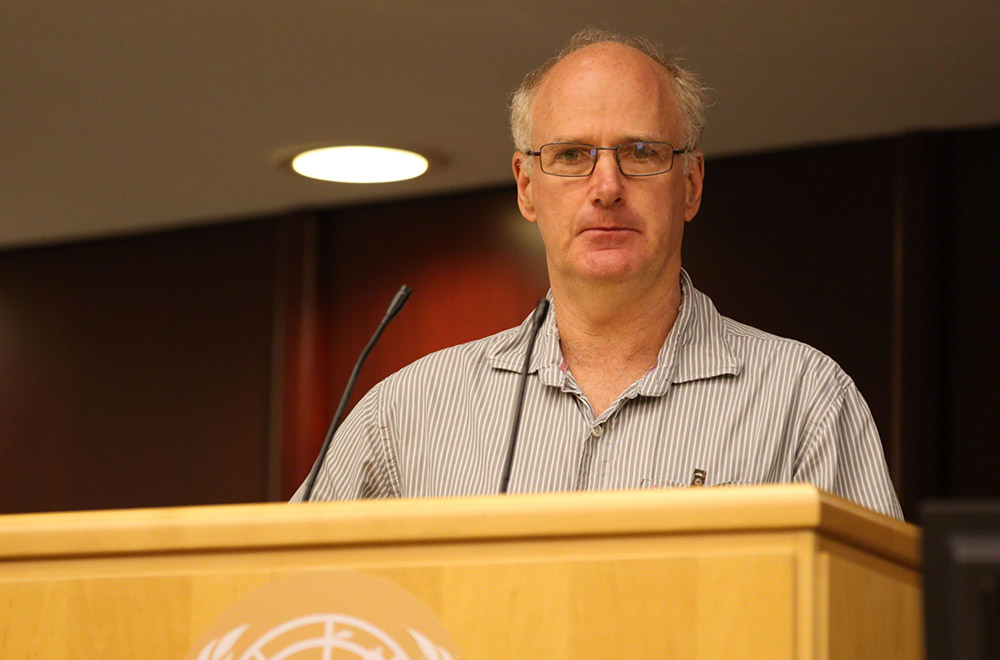
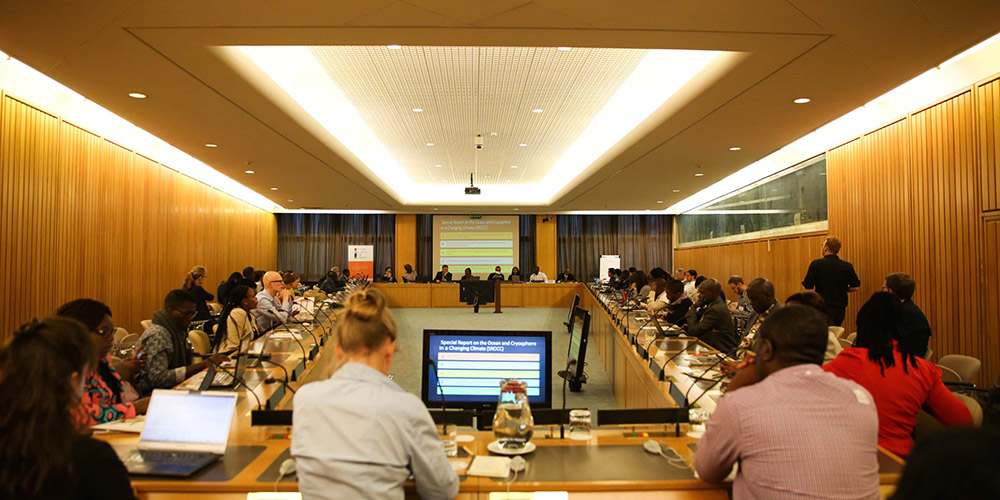
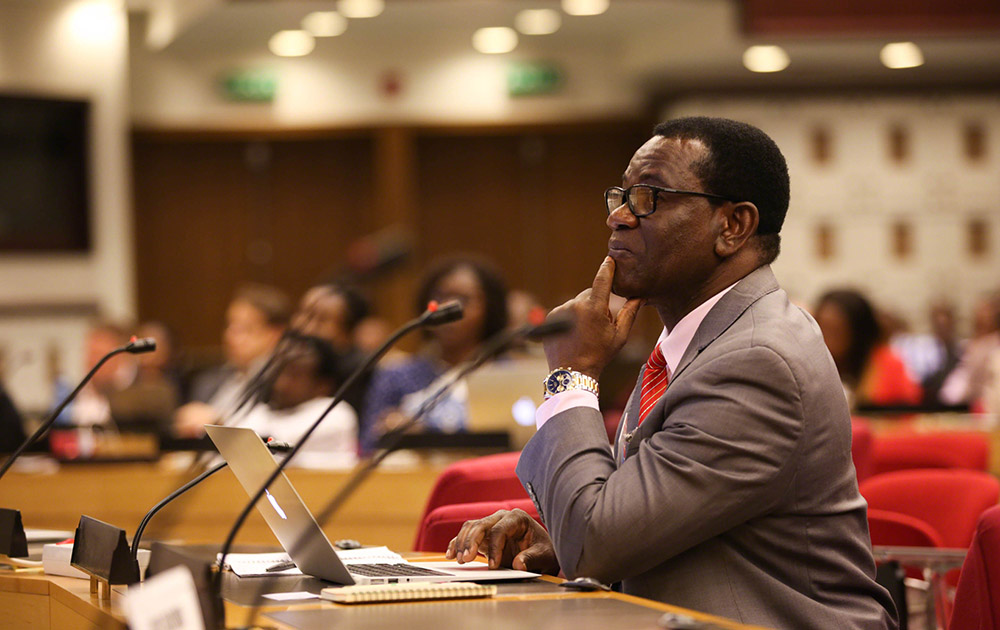
DOWNLOAD ENB+ REPORT
ACRC 2019 Resources
IISD ENB/ENB+ Meeting Coverage
- 50th Session of the Intergovernmental Panel on Climate Change (IPCC-50), 2-7 August 2019, Geneva, Switzerland
- Bonn Climate Change Conference - June 2019, 17-27 June 2019, Bonn, Germany
- IPCC-49, 8-12 March 2019, Kyoto, Japan
- Katowice Climate Change Conference - December 2018, 2-14 December 2018, Katowice, Poland
- IPCC-48, 1-6 October 2018, Incheon, Republic of Korea
- IPCC-47, 13-16 March 2018, Headquarters of the UN Educational, Scientific and Cultural Organization (UNESCO), Paris, France
IISD Resources
- Subscription Page for IISD Reporting Services Peer-to-Peer Mailing Lists (including CLIMATE-L, SDG, OCEANS-L, BIODIVERSITY-L, and Regional Updates)
- SDG Update Newsletter - A compilation of news, commentary and upcoming events published on the SDG Knowledge Hub
- SDG Knowledge Hub - An Online Resource Center for News and Commentary Regarding the Implementation of the United Nations’ 2030 Agenda for Sustainable Development, including all 17 Sustainable Development Goals (SDGs)
- Linkages Update - International Environment and Sustainable Development News